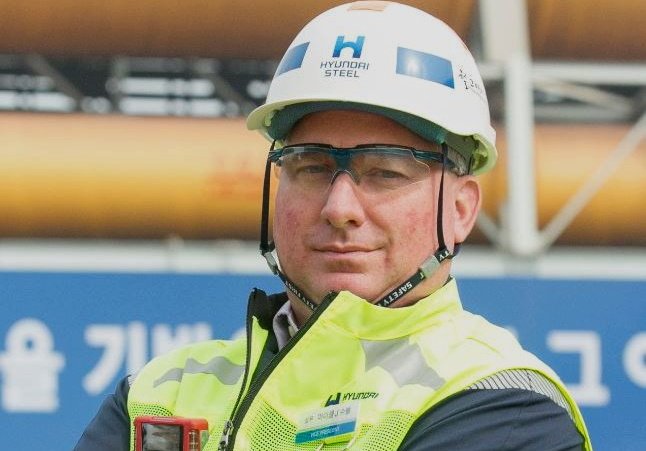Despite the increased automation, the steel industry remains one of the most dangerous industries and is working to create jobs with "zero harm" to the health of employees. Hyundai Steel, the second largest steelmaker in South Korea after Posco, is keen to set an example of such work, Michael Chablet, vice president and head of the safety planning team at Hyundai Steel, told The Korea Herald.
“We have a wonderful security training center, possibly the best in the world,” Chablais said.
Schablais and his team are working to update the security data management system so that every employee can have real-time access to communications, policies, programs and procedures on their Android and Apple mobile devices.
Supporting technology at production sites is critical, especially in cases of blast furnace or furnace gas leaks. Earlier this year, the company decided to require everyone working in potentially gas-exposed areas to wear personal monitors.
“One of the biggest dangers in iron and steel production is carbon monoxide. The danger is that you cannot see it and you don’t smell it, ”he said.
Vice President of Hyundai Steel is considering introducing high-tech monitors that can locate any worker and what his tool is reading from the environment.
“There is still room for improvement. Infrastructure and equipment needs to be developed — for example, Wi-Fi capabilities — so you can network and track employees more accurately. ”
When asked if automation in the metallurgical industry can replace human hands, Chablais replied that this is unlikely to be achieved in the near future.
“You still need to rely on people. Still need human eyes in a quality perspective, double-checking the technology. And you still need maintenance technicians, when equipment breaks down, there is still a human factor that interacts with the technology, ”he said.
“So technology will help, but only to a certain extent. I do not see in the foreseeable future that steel production will be fully automated. ”
Despite its commitment to safety, the corporate hierarchy in Korea is still an obstacle to open communication, a key element of business transparency.
“We want people to raise the flag and say there is a problem. Maybe I cannot solve the problem, but I have to tell someone about it, so that someone who has the power has the resources to solve it, ”he said. “This mindset of being able to fully interact with the frontline employee all the way down to the CEO is probably the biggest change, the biggest hurdles we have to overcome here.
As the first foreign leader of a Korean steel mill, Schublé took local language lessons, saying that he learned more Korean in nine months than in five years in the United States. However, spicy Korean food and corporate hierarchy remain his biggest challenges so far.
The steel industry is facing challenges from rising raw material prices, oversupply of metal products and tightening environmental regulations, which could lead to cutbacks or possibly mergers and acquisitions of companies going out of business. But that doesn't mean it is heading for a dark future.
“This is an industry in transition. There will always be a need for steel, ”says Chablais.
Founded in 1953 as a heavy industry company, Hyundai Steel began operating its first blast furnace in 2010, gaining a worldwide reputation for steel making in a short time. In June 2019, the company was ranked 10th in terms of global competitiveness by World Steel Dynamics, which evaluated 23 criteria, including productivity, profitability and operational stability.




